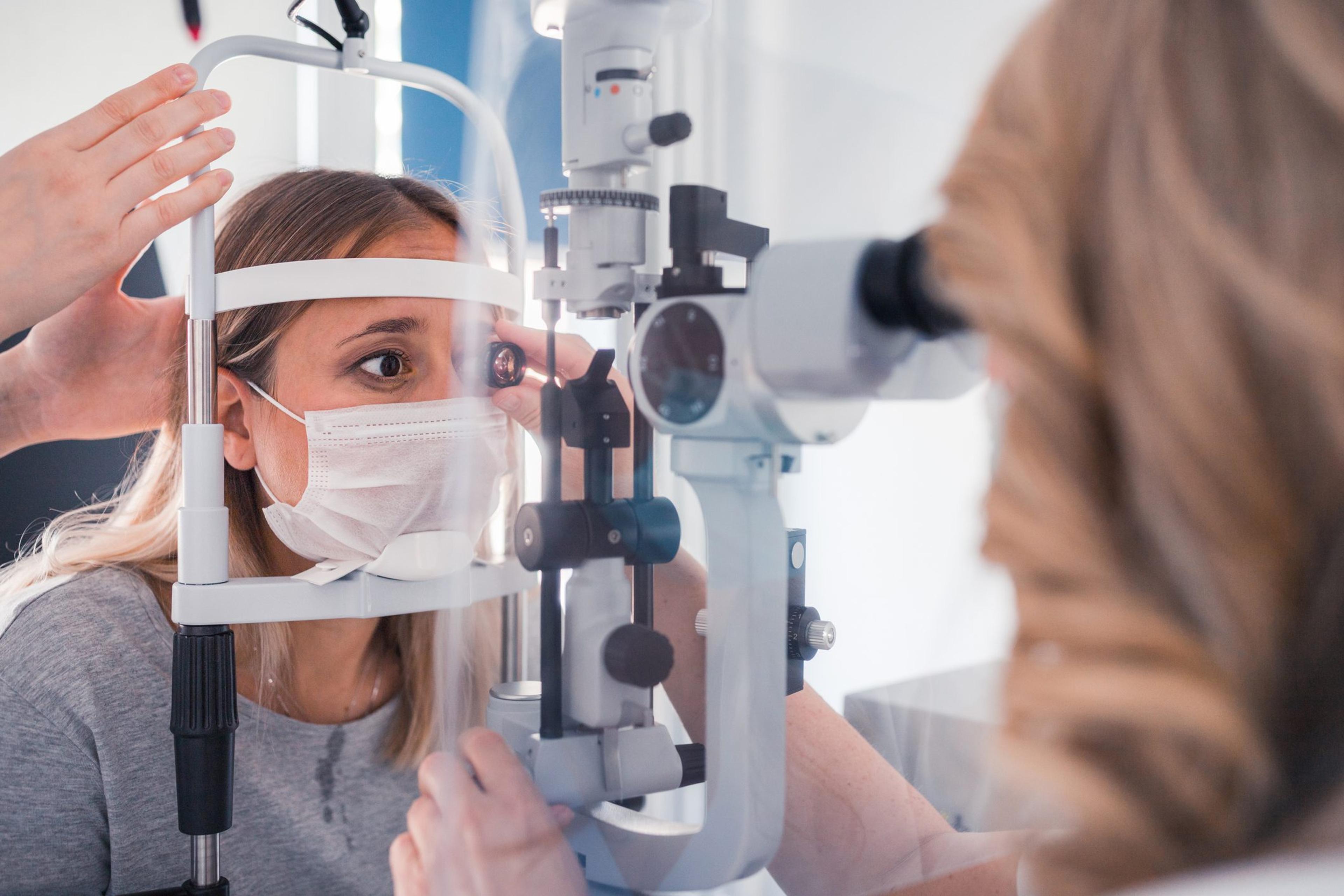Have 20/20 Vision? You Still Need an Eye Exam
Amy Barczy
| 2 min read
Amy Barczy is a former brand journalist who authored...

If you have “perfect” vision, it’s easy to think you don’t need an eye exam. But just as it’s important to visit your doctor every year for a checkup when you’re healthy, it’s also important to visit the eye doctor even if you don’t have vision issues. The American Optometric Association recommends adults with healthy eyes receive an eye exam every two years, and yearly after the age of 65. However, if you have vision problems or a family history of eye disease, you should have your eyes checked more regularly. Additionally, if you have conditions like diabetes or high blood pressure, you may need additional visits with an eye doctor.
Eye exams can detect health problems
Eye exams are more than just a checkup for the lens, retina and optic nerve in your eye. These exams can detect multiple health issues as well, including:
- Cancer
- Diabetes
- Heart disease
- High blood pressure
- Multiple sclerosis
- Parkinson’s disease
- Rheumatoid arthritis
- Thyroid disorder
Unexpected signs of an eye problem
The most common type of vision problem is a refractive error, which means the eye is shaped differently and affects how you can focus on objects. Refractive errors include nearsightedness (myopia) and farsightedness (hyperopia), which affect up to 45% of Americans. However, many people won’t notice the signs of a refractive error, as they can be minor, develop slowly over time and become familiar habits. Eye doctors can help you understand if these small symptoms are actually the sign of a vision issue that could be corrected with eyeglasses, contacts or surgery. Here are the most common signs of a refractive error, according to the National Eye Institute:
- Double vision
- Eye strain (when your eyes feel tired or sore)
- Hazy vision
- Headaches
- Seeing a glare or halo around bright lights
- Squinting
- Trouble focusing when reading or looking at a computer
Vision coverage for members
Blue Cross Blue Shield of Michigan and Blue Care Network members with vision coverage in their benefits can find out more details about their vision plan and locate an in-network eye doctor by logging in to their member account online at bcbsm.com, or by using the Blue Cross mobile app. More from MIBluesPerspectives.com:
Photo credit: Getty Images





